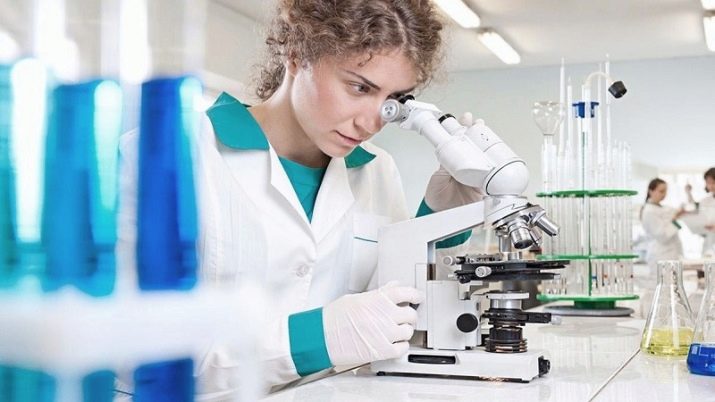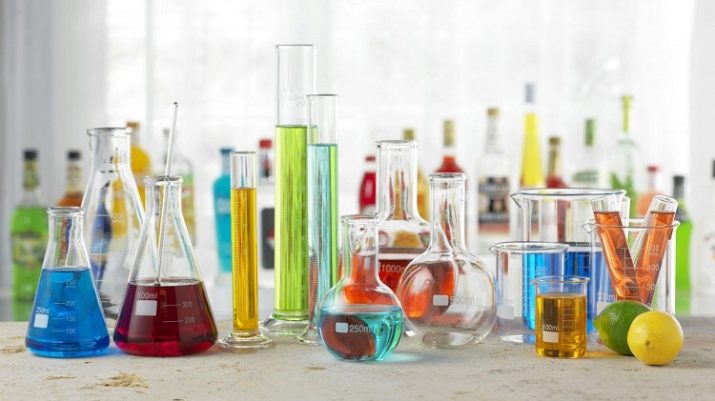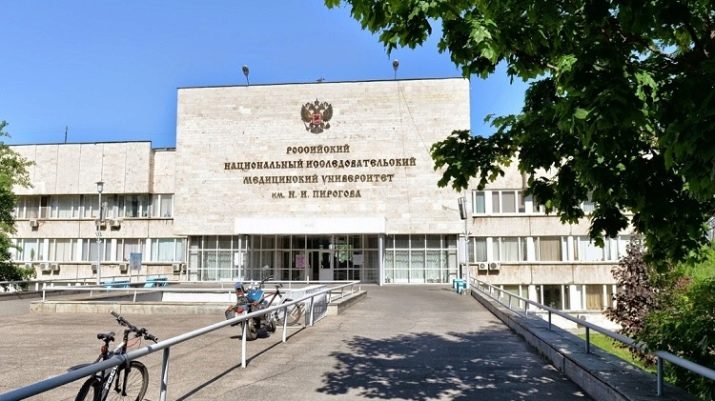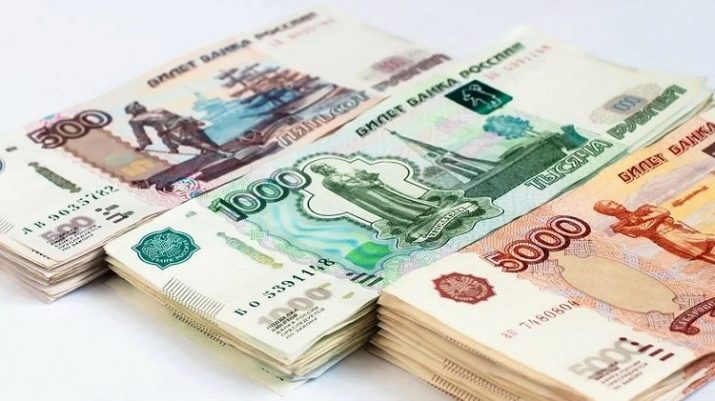Who is a pharmacist and what does he do?

A pharmacist is a person who sells medicines in a pharmacy. The specificity of his activities is extensive and presupposes the presence of certain knowledge and skills, as well as personal character traits. But it takes a lot of time and effort to get a higher medical education, although they are justified.
History
Pharmacy has been around for a long time. This is due to the inevitability of treatment with the identification of new methods and the possibility of sterilizing objects. Initially, they included herbs, minerals, chemicals. Now the responsibilities of pharmacists are wider - from researching the effect of medicines to issues of monitoring and advertising.... The activity of the healer became isolated during the Middle Ages.
And also places of sale of funds began to form when their actions were dictated by the state. For the preparation of ointments and potions, you need an appropriate education and license. Nowadays, pharmacy is subdivided into different specialties, for the development of which you need a professional education of a higher or middle level.
To carry out medical activities, it is important to have certain knowledge and skills.

Pros and cons of the profession
According to preferences, a specialist has the right to choose an exciting, suitable direction for him and develop in it.
The profession of a pharmacist has a number of advantages.
- Career growth prospects - passing courses and special training will increase knowledge, which will allow you to apply for high positions.
- Prestige - the profession is in demand in the labor market. Especially with a shortage of personnel, it is quite possible to get a vacant position.
- Wages are highbut with minor differences. So, in the regions of Russia it is 25-50 thousand, in the capital - up to 85 thousand rubles. The salary is calculated depending on the job description and field of activity.
- Getting started from the student's bench - companies accept in their headquarters employees of the last courses or only those who have just completed training. Initial position - specialist assistant. This opportunity provides invaluable experience with which graduates can apply for leadership positions subsequently.
- Social orientation of the profession - the opportunity to participate in the organizational and educational activities of the population, to receive moral satisfaction from this.
In addition to the variety of positive aspects of work, the specialty also has minor disadvantages. They should be taken into account when a question arises about choosing a profession.
- Interaction with hazardous substances (biological and chemical) in the composition of the drug, from which an allergic reaction may develop.
- Risk of infection... During exacerbations or epidemics, a pharmacist is able to pick up an infection from visitors to the pharmacy.
- Increased responsibility for the life of the population.
- Voltage - inevitable benevolence when working with different groups of people, stress is possible.
- Heavy work schedule - 12 hour irregular working day, evening / night shifts are also possible. This increases fatigue.
Regardless of the positive and negative aspects of the specifics, the profession is interesting and in demand.


How is it different from a pharmacist?
A pharmacist is a top-level employee in the field of pharmacy. It operates in pharmacy, hospital, research enterprises... The pharmacist has acquired only a secondary vocational education. He can work independently of others or in a company with a pharmacist - in a pharmacy. He has a narrow range of responsibilities: no right to lead; the main task is to consult, sell and record medicines.
The difference between a pharmacist and a pharmacist lies in specialized education... The difference is not always visible in the skill / experience of working in a pharmacy, the salary of a drug seller. At the initial stage of pharmaceutical activity, wages are approximately the same. But the pharmacist has a clear advantage, since he has a higher education, which is so necessary for applicants.

Job responsibilities
Labor functions of a specialist:
- sale of medicines and other pharmaceutical products to buyers;
- taking and monitoring the amount of drugs;
- compliance with storage rules;
- tracking the shelf life of goods and the unity of packaging;
- informing the visitors of the pharmacy on the rules for receiving and storing, the existence of side effects, the appointment of medicines and other drugs;
- participation in the production of drugs, depending on the recipe.
The pharmacist also observes similar instructions, but the pharmacist has the right to claim the leadership of the pharmacy. Specialists are responsible for controlling the dispensing of drugs, paying customers through the cashier. In addition, their job is to lay out pharmaceuticals on the shelves, research the demand for goods.
The specialty of the pharmacist is divided into types.
- Clinical - doctor's consultation on drug therapy, on reducing side effects, on the correct combination of funds. When the need is high, he adjusts the cost of treatment. Has the right to carry out his activities in the analysis of the action and effectiveness of medicines. Do not be confused - the pharmacist does not give an opinion and does not contact patients, he only informs the doctor.
- Hospital - provides reliable information to the doctor about innovations in pharmacy. Together with the head physician, he supplies the necessary drugs to the medical institution. Obligations consist of monitoring and evaluating drugs, monitoring their integrity and replenishment.
- Pharmacist-technologist - responsible for the creation of medicines, their storage and sale.
- Pharmacist-researcher - checks the action of drugs, makes an analysis for the positive and negative effects of the components of the drug on the body. The result depends on the possibility of releasing funds into production and distributing it among medical institutions and companies.
- Pharmacist-agent - is responsible for the distribution and delivery of pharmaceuticals to a pharmacy or company. He acts as the main one on one specific network in which he is located.
A pharmacist is a senior staff member who is primarily in management positions. His activity has some peculiarities depending on the sphere. So, even accounting requires special knowledge and training.
That is why this specialty is in demand and highly paid in the labor market.

Requirements
The professional standard of a pharmacist assumes the need for higher education with narrow qualification knowledge (residency or postgraduate studies). According to the professional standard, one cannot work in a specialty without a license... Education requirements also include special personal qualities and skills.
Personal qualities
Higher medical education (pharmacist) suitable for people who have special character traits:
- an impulse to learn everything new;
- reliability;
- punctuality;
- predisposition to analysis;
- sociability;
- friendliness;
- emotional stability.
These qualities indicate a person's predisposition to medical activities. Suitable for pharmacists and pharmacists, as well as many other professions.

Knowledge and skills
The specialist needs to have a penchant for the activities of medical staff. It is the pharmacist who must have at least key skills, know:
- chemical properties of elements and medicines;
- chemical-physical reactions of substances;
- features of the manufacture of drugs;
- storage and implementation rules;
- distinguish between species and groups;
- navigate the composition and dosage;
- rules for the use of pharmacological agents;
- understand the starting and finished substances.
In addition to existing skills, a specialist must also have mandatory knowledge, such as:
- Latin;
- device and technology of medical equipment operation;
- the basis for the activities of "clean zones";
- international standards;
- drug production technology;
- market of in-demand drugs;
- fundamentals of marketing;
- rights and obligations from the legal side (trade and manufacture of medicines);
- rules for conducting transactions - agreements and contracts.
The pharmacist has the ability to carry out his activities abroad, therefore, knowledge of foreign languages - English and the official language of the country in which he has to work - may be required.

Education
To get a higher education in the specialty "pharmacy", you need to apply to a medical school, and for a secondary one - college is enough. The duration of study after grade 11 is 2 years 10 months, after grade 9 - one year more. Medical education assumes full-time full-time education.
To enroll, it is important to submit all documents to the commission:
- general education certificate;
- photographs 3 by 4 cm;
- statement;
- copies of the passport and the results of the SIA / USE;
- a certificate with the passage of a medical examination.
The main subject is chemistry. Psychological testing is optional for secondary education. If you have a professional education, the training period will be 1 year 10 months... But the commission must provide a copy or original of the diploma to the documents. After a student has studied to be a pharmacist, he can go to college.
Studying for a pharmacist assumes a longer education, therefore, the following features are distinguished:
- you need to pass the basic exams in chemistry, biology and the Russian language, sometimes entrance examinations may be required (from the institution itself);
- you have to study for 5 years at the university before getting a specialist diploma;
- obtain a license to carry out medical activities through accreditation, only then a graduate can become an active pharmacist.
To improve professional skills, the student has the right to take courses and seminars by correspondence courses. In general, a pharmacist should be trained in person, but exceptions are possible. So, if a student already has a professional medical education, then he has the right to switch to full-time and part-time form. This is mainly in the 4th-5th year. The correspondence form is possible, but it is practiced only by some institutions.
For continuous medical activity, a pharmacist-pharmacist must constantly undergo retraining and advanced training. Continuous learning and skill development are important as pharmacy develops and new drugs emerge to be aware of (characteristics and action).

In addition to a diploma, for the implementation of professional activities, a certificate is required confirming the right to conduct medical practice. For certification, a pharmacist needs training on the basis of vocational education in a higher medical institution (in internship and graduate school). A specialist without a certificate can work by profession, but only under the guidance of senior colleagues.
Obtaining a certificate is necessary for full-fledged work. But there are some nuances in the form of specialized courses and the cost of training. The specialist must pay for the additional area of medical activity from his own budget.... As for obtaining a higher professional education, independent admission is real only with the successful passing of the exam (for this, the main subjects are studied).
There is a list of the most prestigious places of study, but each person chooses a suitable place depending on the geographical location, their own preferences.
The most popular are the following institutions in Russia, after training in which you can work as a pharmacist:
- St. Petersburg State Medical University named after Pavlov;
- Kazan State Medical University;
- Russian Research MU named after Pirogov;
- Moscow State Medical University named after Sechenov;
- Saratov State Medical University named after Razumovsky.
The choice of education is faced by every student. Successful admission requires good USE results and an impulse to learn new things. The Medical University will allow you to get secondary or higher education in your chosen profession. The pharmacist-pharmacist is in demand and earns good money.

The salary
The pharmaceutical specialist's field of activity is multifaceted, but mainly focused on the pharmacy. The exact salary is determined individually, this is influenced by certain factors:
- geographic distance of the object;
- skill level;
- experience and acquired skills;
- job activity;
- working day length, number of shifts.
A pharmacist receives a higher salary than a pharmacist or newcomers. The average salary in Russia for a pharmacist with a higher education is from 25 to 70 thousand (this is an approximate figure).
When working with foreign companies, the amount increases significantly, approximately 2 times.

Career
After completing training in the specialty of a pharmacist-pharmacist, the graduate is looking for a job. In the long term - a prestigious and highly paid place (often this comes with experience). Depending on the field of activity, the position of the pharmacist also differs. Now on the service market there are many interesting offers from employers for pharmacologists, so it is likely to find a suitable place for anyone.
With advanced training, a specialist has the right to apply for a high position and a different salary (higher than that of beginners). The work is not influenced by external factors. Even when you move, the profession is still in demand and interesting. A medical graduate can try different jobs, for example:
- head of the pharmacy;
- management of a network of pharmacies;
- consultation of a doctor in a hospital on pharmacy issues;
- warehouse or pharmacy employee;
- scientist;
- responsible for the production and quality of drugs;
- a senior officer capable of issuing licenses and certificates;
- managing the process of selling pharmaceutical products;
- responsible for monitoring the drug market.
In addition to the usual work in medical institutions, a pharmacist-pharmacist can get a job in the field of teaching, especially at the university that he graduated from. This is lecturing in professional disciplines:
- in college;
- at the university, institute;
- by invitation - part-time, in this case it is possible to combine with the main job.
A specialist can work with a diploma when registering his own business, if you open a pharmacy or a whole network. To do this, you just need to settle the legal side of the issue.









